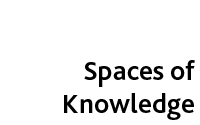Project
The Project examines the role of scientific elites for processes of integration in Europe. It understands integration as multifold processes of socialization,knowledge acquisition and exchanging discourses where elites and knowledge communities play a central role. We expect this classical (neo-) functionalist understanding of integration and the Europe of citizens to be more fully elucidated by an analysis of key discourses in the etablishment of modern science, i.e., biologie and chemistry.
Between the enlightment and and the 20th century both disciplines not only developed an unique understanding of their subjects but also established an intensive transnational and transborder exchange of knowledge. In biology, the discourses on diversity, evolution and inheritance transformed the discipline from natural history into a modern science; in chemistry the results of innovative experimental approaches rapidly rapidly spread and created a common set of knowledge within Europe. Thus, history and philosophy of science are instructive in that they highlight the processes and mechanisms of the creation of knowledge communities in Europe: The establishment of modern biology and chemistry in Europe are excellent examples for a kind of laboratory situation of integration. They can enlighten not only how discourses transcend borders, but also how elites interact by rational discussion and what mechanisms work to establish a common knowledge community.The research undertakes to cross-fertilize key aspects of European integration, especially the role of elite discourses, with approaches from key problems of philosophy of the sciences concerning the establishment of modern sciences such as chemistry and biology and their paradigmatical development, in particular the establishment of discourses between scientists within and across paradigm boundaries and the simultaneous building of knowledge communities and a common European knowledge space.

